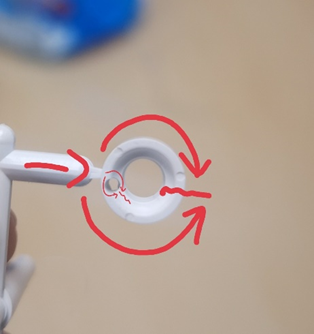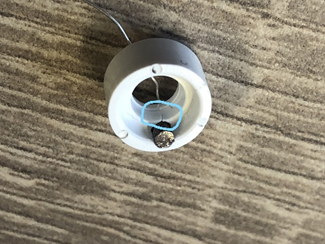MFI Medical Industrial Uses Micromolding for Electrode Plasitc Housings
- Emilijus Šližauskas
- Apr 8, 2022
- 3 min read
Updated: Aug 16, 2022
Medical Injection Molding Project
MFI (Medical, Industrial) provides design, engineering and production services in Medical and Industrial fields covering high-end on-demand manufactured cables and wires. The company specializes in custom wire harness, assembly of connectors, EEG caps, cable design, soldering fine wires and much more.
MFI is a company that has a 15 years of expertise in the medical and industrial fields. MFI has established its name in custom-made wires, electrodes, and similar products categories. MFI has a dedicated team of engineers who are experts in 3D modelling, mechanical engineering, prototyping, and manufacturing. All this is for the creation of a reliable connection for the client.
Subcontracting Molding Service
When it comes to subcontracting with other manufacturing companies there is always some curiousity to find out something similar between the partners. We were glad when we knew that we have much in common with cable overmolding - even though Micromolds company specializes in micromolding technology, we have had some cable overmolding projects in the past as well. Maybe this much related subject helped as to bond and develop a stronger partnership with other projects to come in the future.
Receiving an RFQ
This cooperation itself was about injection moulding of a plastic housing for the electrode. As soon as we received the RFQ we understood that this is something we can surely do without much competition, because we could check-mark all of the below:
The part was small enough so we could make even 8 or 16 cavities in a single micro mould;
The manufacturing volume was up to 100k;
It had some micro-features achievable only with micro moulding technology
Urgency - the project had to be done in few weeks and it needed rapid prototypes
We had in stock medical grade ABS material.
The product was an ideal for our micromolding technology and thus we felt quite sure that we can give a competitive offer for the client.
DFM analysis and part optimisation for moulding
After the order confirmation, as always the DFM followed. Since the contracting company was a manufacturer and had a strong engineering knowledge itself, the quality of the CAD model was superb. As well as the RFQ received itself.
“This is what we call a qualitative RFQ that helps to save time for both of the client and the manufacturer” – says CEO Jonas
We had only to add some draft angles for some regions and also agree on injection points and ejector marks. The process was fast and smooth and thus we transitioned to the tooling stage in about 3 days.

The Tooling – Mold Making
We used aluminium micro molds with 4 cavities. No EDM machining was required. We had molds ready in less than 1 week for sample molding.
Sample Check T1
When we mold the samples we are the first ones that can inspect them and tell the quality of the work done. As always, we are honest and transparent with the client and if needed we share optical images or videos of the defects occurred.
However, the defects can be of 2 types: caused by the moulder (us) or by the client – design of the part. In this case when we received the first feedback there could be controversial opinions: the broken wall could have occurred due to the wrong knit line location (bad part optimisation – our responsibility) or bad design (client’s responsibility). Thanks to the expertise of both the client’s and ours engineers we could nicely agree that this was not an issue of a knit line which was not possible in this situation, as seen in the picture.
Both parties could agree that the wall should be thickened and thus the solution to the challenge came quickly. As the CEO of MFI Ronald de Vreeze would say:
“We have a solution for just about every challenge – be that specialist customization in single pieces or large volumes…”
When it comes to the mold modification due to the subtractive type of CNC machining we can only carve out the material from the mould but not add it back. Since the wall had to be thickened the modification was a minor change and we did it in few days.

The results
Since the changes were obvious and minor the client decided to avoid the sample check T2 and we went straight to manufacturing of the first batch. Even though we had some little anxiety after we had sent the first batch we received another order for batch 2 and the anxiety dissipated instantly as the results were satisfying.

Not only did we succeed in this single project but we have also built a strong partnership with a MFI company – we are having next 2 projects to come and we take this as prove that we did a truly great job.












Comments